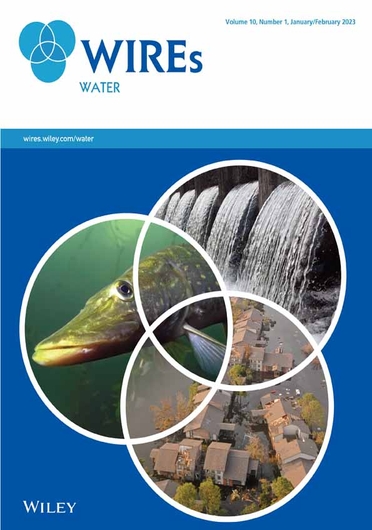高地下水位:过程、后果和管理
IF 5.8
1区 地球科学
Q1 ENVIRONMENTAL SCIENCES
引用次数: 1
摘要
近年来,地下水位过高的问题引起了人们的关注。地下水位高的不利后果是对建筑物、基础设施和环境的破坏。导致高地下水位的过程是水文(强降雨或长时间降雨和洪水事件)或人为(地下水开采减少、与下水道网络的相互作用、水利工程措施、水平衡中的结构性干预和采矿活动)。已经编制了几种不同的地图产品,供居民参考和用于规划目的,并且还制定了与高地下水位有关的损害和风险分析方法。地下水管理措施和结构性措施可以减少与高地下水位有关的风险。一个操作管理系统可以从现有的组成部分组合起来,但是高地下水位的操作预报系统不同于洪水预报系统——还不是普遍的做法。更好地理解过程和开发建模、设计、计划、预测和警告的综合方法,以及改进不同组织之间的跨学科协作,是对未来的建议。本文章由计算机程序翻译,如有差异,请以英文原文为准。
High groundwater levels: Processes, consequences, and management
In recent years, the issue of high groundwater levels has caught attention. Unfavorable consequences of high groundwater levels are especially damage to buildings, infrastructure, and the environment. Processes that lead to high groundwater levels are hydrological (heavy or extended rainfall and flood events), or anthropogenic (reduced groundwater extractions, interaction with sewer networks, hydraulic engineering measures, structural interventions in the water balance, and mining activities). Several different map products have been prepared for the information of inhabitants and for planning purposes, and also methods for damage and risk analysis related to high groundwater levels have been developed. Groundwater management measures and structural measures are available to reduce the risk related to high groundwater levels. An operational management system could be combined from existing components, but operational forecasting systems for high groundwater levels are—different to flood forecasting systems—not yet common practice. A better understanding of the processes and the development of integrated approaches for modeling, design, planning, forecasting, and warning, as well as improvement of interdisciplinary collaboration between different organizations, are recommendations for the future.
求助全文
通过发布文献求助,成功后即可免费获取论文全文。
去求助
来源期刊

Wiley Interdisciplinary Reviews: Water
Environmental Science-Ecology
CiteScore
16.60
自引率
3.70%
发文量
56
期刊介绍:
The WIREs series is truly unique, blending the best aspects of encyclopedic reference works and review journals into a dynamic online format. These remarkable resources foster a research culture that transcends disciplinary boundaries, all while upholding the utmost scientific and presentation excellence. However, they go beyond traditional publications and are, in essence, ever-evolving databases of the latest cutting-edge reviews.
 求助内容:
求助内容: 应助结果提醒方式:
应助结果提醒方式:


